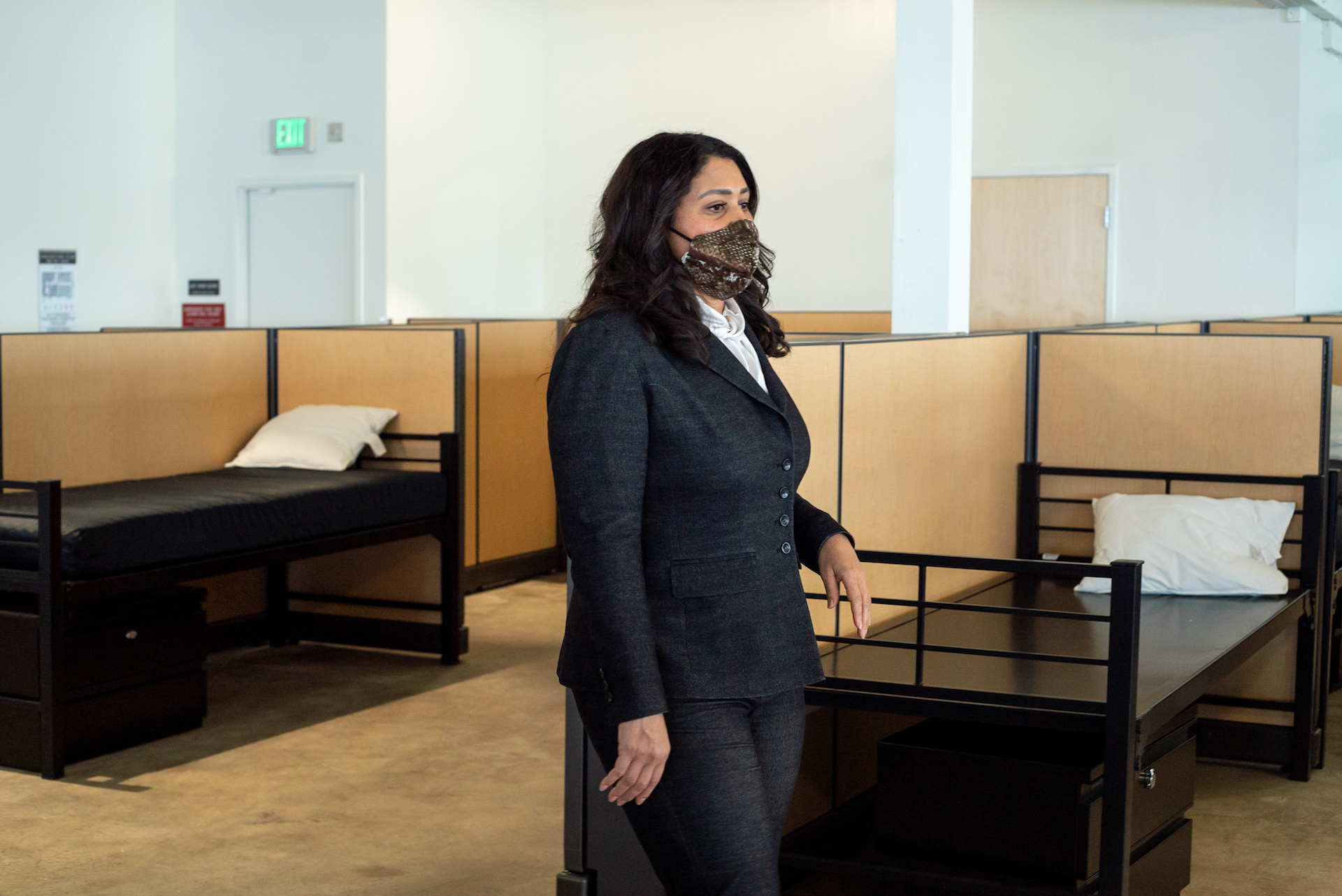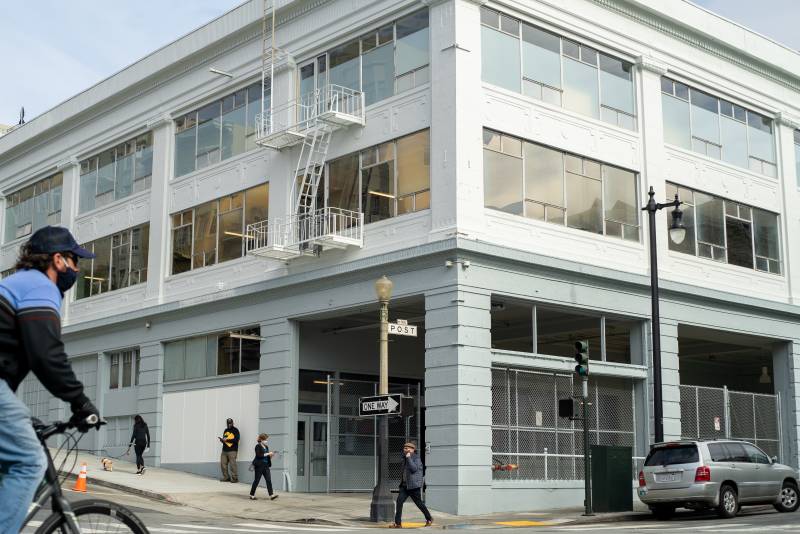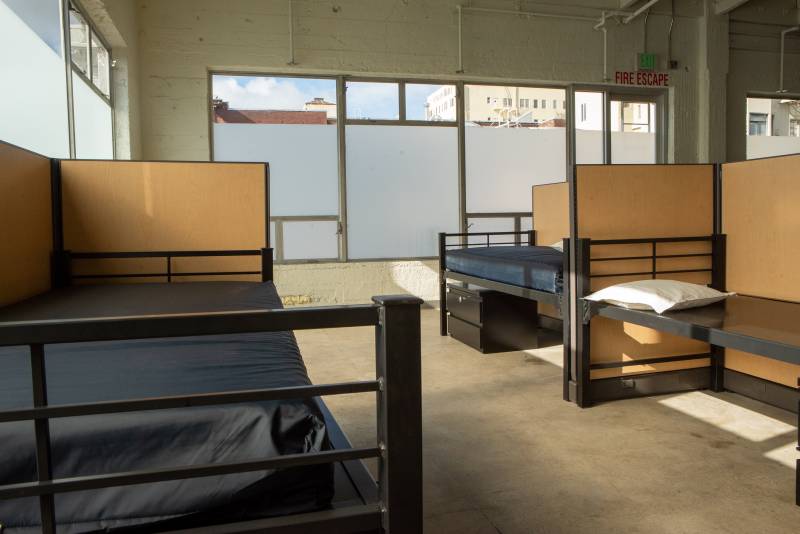San Francisco officials on Wednesday unveiled the city’s first multiservice homeless shelter for young adults.
The Lower Polk TAY Navigation Center, located at 700 Hyde Street, will eventually offer 75 beds to young people ages 18-24, known as “Transitional Age Youth.” Due to COVID-19-related restrictions, however, it will initially only fill 43 beds, with the first guests set to arrive next week, officials said.
Navigation centers have a lower barrier to entry than other kinds of homeless shelters, allowing guests to bring in pets and cohabitate with partners. There’s no curfew or set meal times, and the site is staffed 24 hours a day.
Mayor London Breed said the new center is part of the city’s strategy to end youth homelessness. Breed launched a campaign in 2018, called Rising Up, to raise $35 million that will provide rental assistance and other support to youth after they leave the shelter.

“This is hope for a better future for young folks here in SF,” Breed said. “If you want an opportunity, you should be able to have one.”

